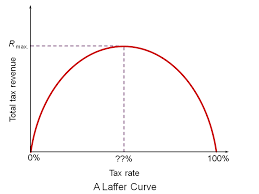Equality of Institutions: Key determinant of Economic Progress
Latitude and economic prosperity are remarkably correlated. For instance, nations which are closer to the equator have lower levels of income per person than nations farther from the equator. Tropical climates near the equator have direct negative impact on productivity. Agriculture is more difficult in such areas, and diseases are more prevalent. This makes the production of goods and services more difficult.
Research by Daron Accmoglu, Simon Johnson, and James Robinson has suggested an indirect mechanism for the impact of geography on institutions. Their explanation is as follows,
In seventeenth, eighteenth, and nineteenth centuries, tropical climates posed an increased risk of disease like malaria and yellow fever to the European settlers. As a result, when Europeans were colonizing much of the rest of the world, they avoided settling in tropical areas like Africa etc.
In tropical climates, the colonial powers had set up authoritarian governments and institutions which aimed at taking advantage of area’s natural resources. These institutions did little to foster the economic growth of tropical regions.
The earlier institutions set up by European colonizers are strongly correlated with modern institutions in the former colonies. In tropical countries, there is less protection of property rights even today. When colonizers left, the extractive institutions were taken over by new ruling elites.
Hence, equality of institutions is a key determinant of economic performance. Where property rights are protected, people have more incentive to make investments which in turn lead to economic growth. In tropical nations, where property rights are not respected, investment and growth tend to lag behind.





5 Comments. Leave new
Good
good 😀
Nice work. Our country can also serve as a good example.
Nicely Written 😀
Well done